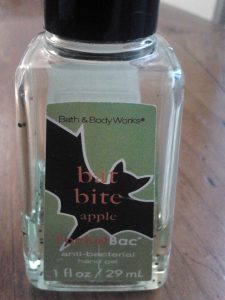Language learning is an ongoing process, and if you’ve ever tried to muster up a few phrases in a foreign language, I’m sure you’ve had your fair share of flubs. I’ve botched French more times than I can count, and while most of them were unexciting, there are several French language mistakes that will stay forever engrained in my mind.
Read on for my top French language mistakes and faux pas!
So this is the post where you learn that I’m a moron with all my French language mistakes. Yes, I speak advanced French (now at least), but it hasn’t always been that way. Sure, messing up every now and again is natural, but when you’re the one messing up, you feel like a complete fool in the moment. And those are only the times where you realize you’ve messed up! Add in a flub that’s kind of embarrassing and well, there friends, you have my life.
Thankfully these kinds of French language mistakes don’t happen all that often now, but they did…
I’m sure many have escaped my memory due to the fact that they were too traumatic (I’m kidding… I think).
Here are my top French language mistakes that you may or may not find amusing:
I called Dagny’s dog trainer the bat man instead of the bald man
At dog school, we had just arrived and the volunteer asked me who led our class. I didn’t know our instructor’s first name, so I decided to call him the bald man, which is chauve in French. Une chauve-souris is a bat.
It’s simple really; souris is a mouse. So bald mouse. Makes sense? Well, genius me made the mistake of saying “Our instructor is that bat man.” I said chauve-souris instead of just chauve. Why? No clue. And that was an easy one to say correctly!
Preservatifs are condoms — not preservatives
This is one that every French student learns pretty early on and I know not to confuse the two. But for some reason, sometimes I’ll utter half of preservatif before realizing I mean un agent de conservation or conservateur. Sometimes it’s better to just slow down.
Don’t say the word beet in English when you’re at a formal family dinner with your husband’s family
Learn from me, friends. Early on when I first met Tom’s family, I didn’t know the French word for beets. We were eating them one night when I wanted to remark that they’re not a food I eat often in the U.S.
Well, little old me didn’t realize that bite in French (pronounced nearly the same as the English word beets) means cock. Great. So I told Tom in English all about the BEETS in the U.S. and how I never eat BEETS. All his parents heard was “Language I don’t understand COCK more gibberish COCK.” Great first impression, let me tell you. BTW, in French, a beet is une beterrave.
And another instance of the word bite in French — this time with the plumber. A few months back, we had a plumber come fix our toilet and afterwards, I offered him some hand sanitizer that I had just used. It was Bath & Body Works’ Halloween scent called Bat Bite. Here’s a lesson, folks.
If you have a hand sanitizer with the word bite in it, do NOT offer it to a male you just met when in France. Any other scent would be fine, but not this one. Well, I handed that over to the plumber and as he squirted it on his hands, he noticed the little unassuming French word on the front. He looks at me very confused and I had to explain that I wasn’t propositioning him with my little container that could pass for lube. Ooops.
Jouer and jouir are not the same
Sometimes you say the wrong word. It happens. And this one happened the other day in front of Tom’s parents who probably thought I was nuts. Jouer means to play and jouir means to climax (as in have an orgasm). I know the difference, but on this particular day, I messed up.
We were talking about games and I was trying to say that when you’re playing a game, sometimes you think of the strategy in your head before you make your move. I meant to say, “In Tom’s head, he’s always playing” but said more of “Tom’s head is always orgasming.” Just brilliant.
When you’re hot, you should watch your verb
On a hot summer’s day, you’ll probably remark that you’re hot — as in physically warm due to the sweltering temperatures. What you’re going for here in this context is j’ai chaud with the verb avoir (to have). But many English speakers, myself included, have said je suis chaud (using “to be,” etre) because it translates literally to I am hot not I have hot, and that just seems correct.
But je suis chaud means I’m hot as in I’m horny. I’ve heard that in Quebec, je suis chaud can also mean that you’re drunk. Either way, not what you want to be saying in most cases…
***
Tell me your most noteworthy language mishaps below!







I read the bite/beet story on the Ella Coquine’s blog (not sure if you know that one)! It was an epic mistake she made during a Christmas dinner with her in-laws! I nearly died when I read it. I guess it’s a common mistake! I’m cringing…
Diane, these are hysterical. I haven’t had too many flubs myself, but I had one pretty good one in front of my host mother… My roommate has gorgeous naturally jet black hair, and my host mother was talking about how lovely it was and how she should never dye it. I frowned and wanted to say that I was jealous, so I said “J’envie de toi” but I knew it was wrong as soon as I said it. Thankfully, my host mother just laughed and corrected me, I should have said “je t’envie.” Evidently, I said that I wanted my roommate… awkward…
awh as I was reading these I was remembering the many gaffs I made while living in France! Once I asked the security guard at the local supermarket where the “camions” were meaning “cadddy” He still laughed 5 years later whenever I went there to shop! Another time I rang up an ad for puppies but asked were they selling “chiottes” not really too sure what the correct spelling of that would be but its the rude word for les toilettes 🙂
Yup, it happens to all of us! Makes us that much more understanding when someone in our country is struggling, right? I really try to understand foreigners who just can’t get the words out or mix things up. Thanks for sharing 😉
Very first time on a TV show that I heard the French singers Zazie, I really liked her style, so on my next trip to Cannes I jumped into the FNAC, found the CD section and walked up to the young woman in charge. n my very best French I asked, “Est-ce que vous avez un ZiZI! for a moment she looked like a fox in the headlights, then regained her composure and said as unemotionally as possible, “Is there some way I can help you, sir?”
Hahha, thanks for sharing! I guess sometimes we have to make mistakes to learn. That’s all part of the fun!
I’m liking your blog! I live in France at the moment and have had a few mistakes myself – for example, I went to the pharmacy to ask for something for my ‘problemes gastriques’, but I actually said ‘problemes gastronomiques’… The pharmacist didn’t say a word but I was telling my roommates the story about 5 hours later, and it was only then that I realised I had gone to the pharmacy to ask for help with my cooking problems! Oops!
Hi, thanks so much for stopping by! That’s a very tame mistake at the pharmacy so I’m sure the pharmacist still understand. I hope he gave you something to help your stomach!
A friend of mine from France was visiting me once (in Denmark), when she heard me call out my cat’s name. That’s when I learned that my cat is basically named “pussy” in French. And it’s not even a she! Poor boy 🙂
I had just learned the word for “spoilsport” — rabat-joie. A day or two later, at a social gathering, someone was being a little discouraging, so I said, “Sois-pas un abat-jour,” extremely proud of my new vocabulary, not to mention my correct use of the subjunctive.
I was puzzled and a little dismayed when everyone present burst out laughing, because rather than telling someone not to be a spoilsport, I had just said “Don’t be a lampshade!”
Mine isn’t really a flub as I used it correctly but the thing is, I used it on a Canadian who was quite new in France…
At a party, I asked a male friend “ça va tes gosses?” (to ask how his kids are doing) and well, in Canada gosses refers to testicles (but of course). SO I just literally asked about the well-being of this man’s balls…and in front of his wife too. Great.
Moral of the story: always use “enfants”. 😉
P.S. Love your blog! xx
Oh man, yea that one is funny but you used it in France so you win since it’s only crude in their dialect. 😉 If you were in Canada then it’s your mistake. But I can see how humiliating that could be, depending on how friendly you were with the family. Yes, always stick to gamins or enfants. hahaha. Thank so much, so happy you enjoy the blog!
Waaay back in the 80s I was doing my 3rd year of university studies in France, with a bunch of other Canadians. We were living in a dorm – my next-door neighbour came to tell me my music was tool loud, so I told her that I was sorry and that I would “baiser” the volume instead of “baisser”. She broke out into fits of laughter. Thank goodness I knew immediately what I had done! haha!
Trop marrant !